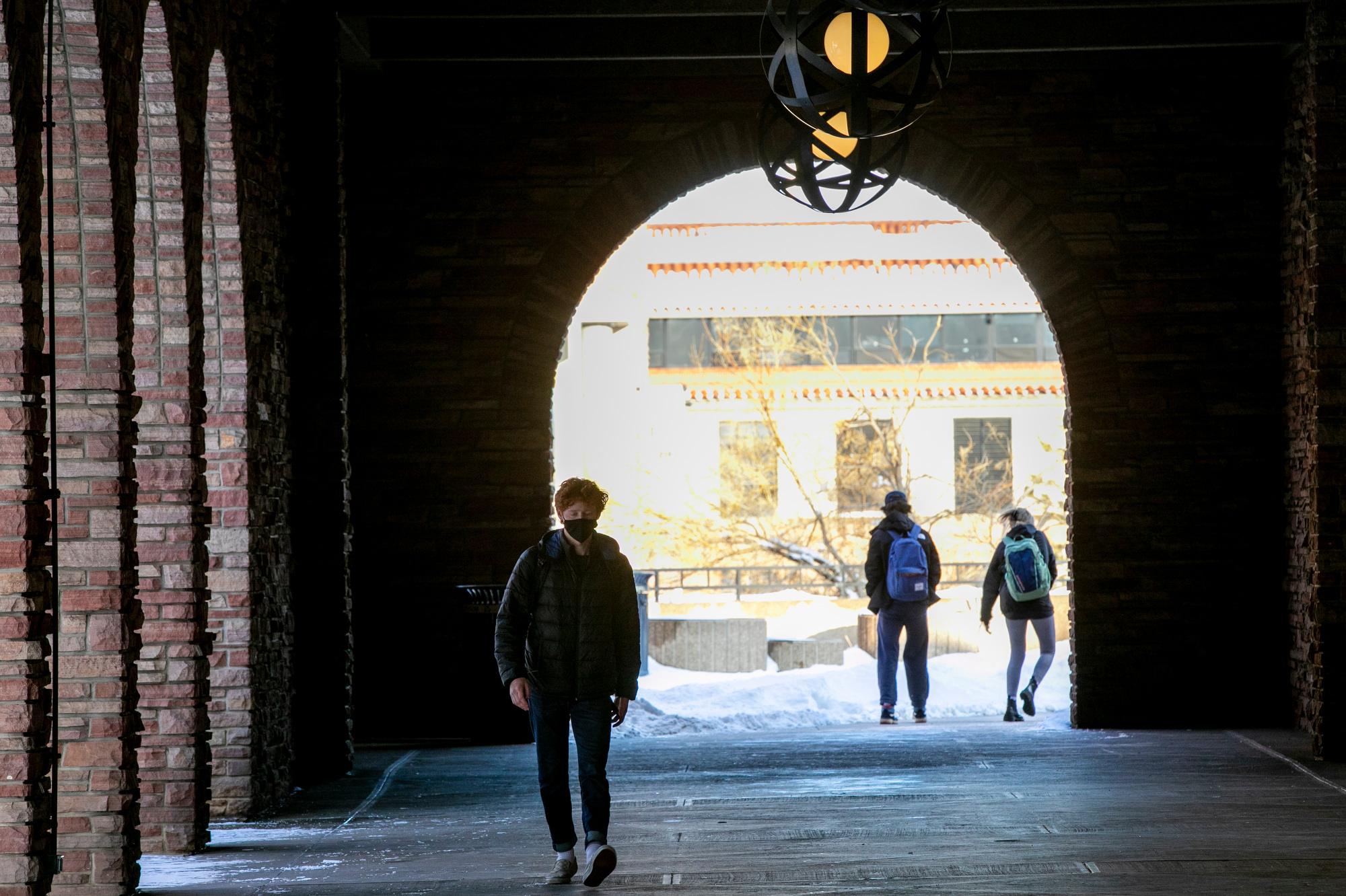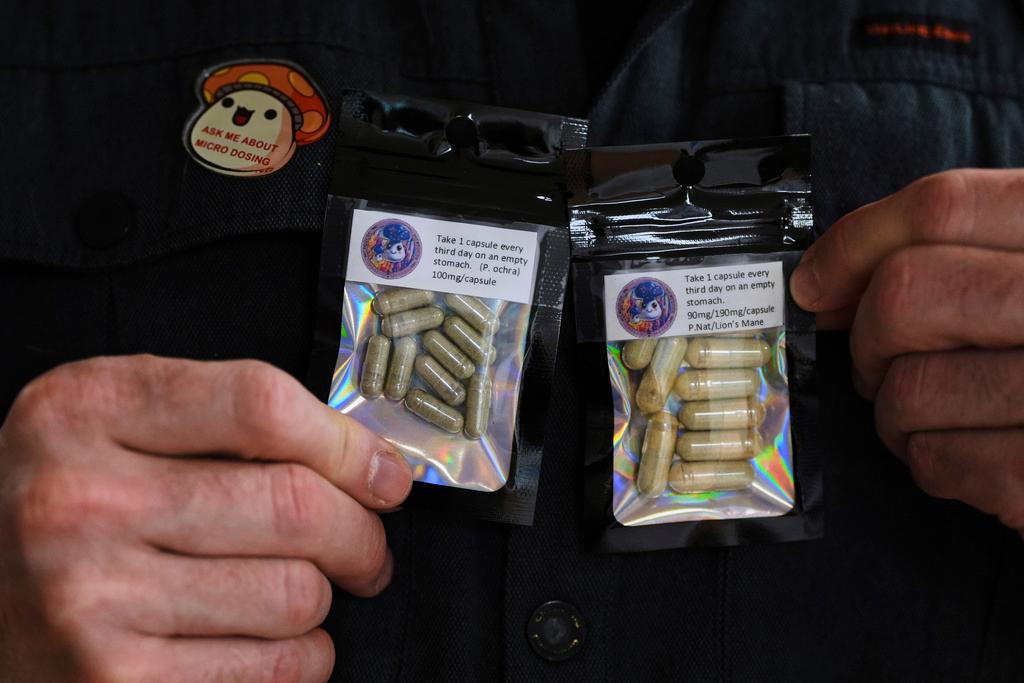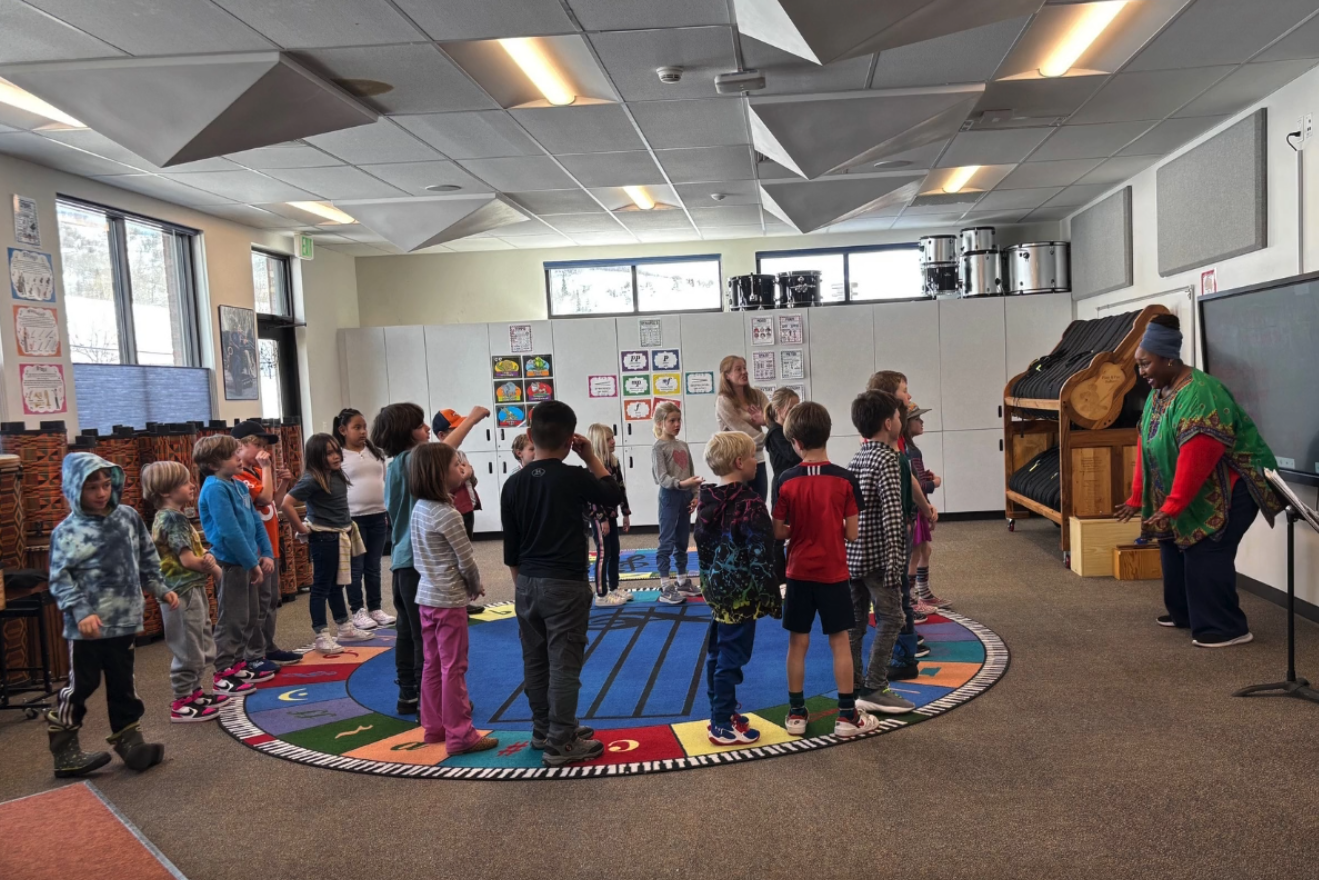
Updated 4:29 p.m.
After their faculty and staff were left out of Colorado’s updated COVID-19 vaccine priority list in January, higher education leaders wrote to Gov. Jared Polis requesting doses be allocated to student-facing workers.
In correspondence obtained by CPR News, executive leaders of 18 higher education institutions — including the University of Colorado System, Fort Lewis College and the Auraria Higher Education Center — sent a letter to Polis and other public health officials on Feb. 1. The week prior, Polis announced the state’s elementary, middle and high school teachers would soon be eligible for vaccination, citing a need to protect teachers doing in-person classes.
The higher education executives questioned why faculty and staff across Colorado, who have been teaching in-person since fall, are not classified as “frontline workers in education.”
“In Fall 2020, our faculty and staff served over 235,000 students across Colorado; we continue to serve our missions to educate the next generation of Coloradans in the spring semester,” the letter said. “Many of our institutions have offered significant numbers of in-person courses, research and academic labs, and studios throughout the academic year, which has placed large segments of our faculties on the front lines during the pandemic.”
Several weeks later, their efforts have paid off. On Friday, Polis announced more changes to the vaccine distribution plan and introduced Phase 1B.4, which is due to start in late March. Higher education workers in student-facing environments are eligible through the new phase.
Guidance from the Colorado Department of Public Health and Environment said student-facing staff includes instructors, professors, vocational educators and staff providing safety and other support services inside the school.
Authors of the letter were quick to praise the decision. Several expressed gratitude on social media. On Thursday, Fort Lewis College President Tom Stritikus told CPR News he hoped the governor would recognize the risk faculty and staff were taking. After he learned of the new phase on Friday, he thanked Polis.
“Our student-facing faculty and staff appreciate his acknowledgement of the vital role higher education plays in our state,” Stritikus said.
Colorado Department of Higher Education Director Angie Paccione, a member of Polis’ cabinet, said this will help universities solidify their fall semester plans.
“It’s particularly helpful for the institutions as they make plans for the Fall – knowing that most if not all of their faculty will be vaccinated by then – that will help them to plan to get students back onto campus and into the classrooms,” Paccione wrote in a statement sent to CPR News. “Now ALL of Colorado students, young and older and their instructors can attend face-to-face instruction without fear.”
For many universities, restoring pre-pandemic activity levels is an important need. Admission is declining at many schools, including the state’s flagship university. One report from CU System administrators said stabilizing enrollment rates would be easier if students could return to in-person learning in the fall, since many high school seniors chose to delay college during the pandemic, to wait for a fuller on-campus experience.
Some campuses are already making plans to lessen coronavirus restrictions and offer more in-person courses next semester. The University of Northern Colorado in Greeley announced it will provide a full schedule of on-campus classes in the fall. CU Boulder will “move forward with a more comprehensive on-campus experience this fall,” which is not entirely defined but will include increasing access to facilities and amenities.
Friday’s move comes after weeks of back and forth, when higher education leaders requested a meeting with Polis to discuss the content of the letter. His office declined to make the governor available and asked for them to instead meet with members of his COVID-19 response team.
That meeting took place on Feb. 8, with Rick Palacio, strategic advisor for COVID-19 recovery, and Xander Martin, deputy coordinator for COVID-19 response. But the vaccine priority list didn’t change right away. Higher education workers who didn’t qualify under other existing parameters — like their age or underlying health conditions — would still be eligible for vaccination alongside the general public in summer. That changed Friday.
Colorado Community College System Chancellor Joe Garcia, a former Colorado lieutenant governor, was also at the meeting on Feb. 8, and said he understood Polis didn’t have a lot of options.
“I don't want to give a sense that there's hostility or tension between us and the governor's office,” Garcia said. “There's a lot of things we would wish the governor could do more, get us more money, help us build more buildings, and certainly move us up in the vaccination list. But we recognize there are constraints and we want to work with him to create more opportunities for our employees.”
Editor's Note: A limited number of CPR News journalists have started to receive vaccinations according to the state's prioritization of essential frontline workers.









